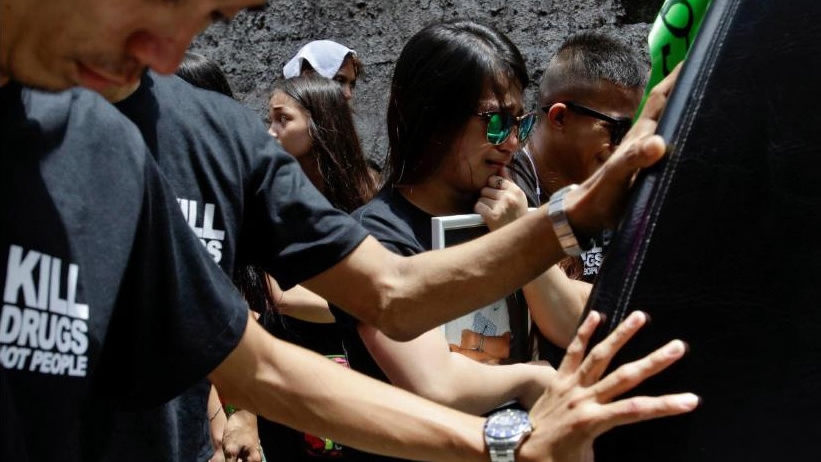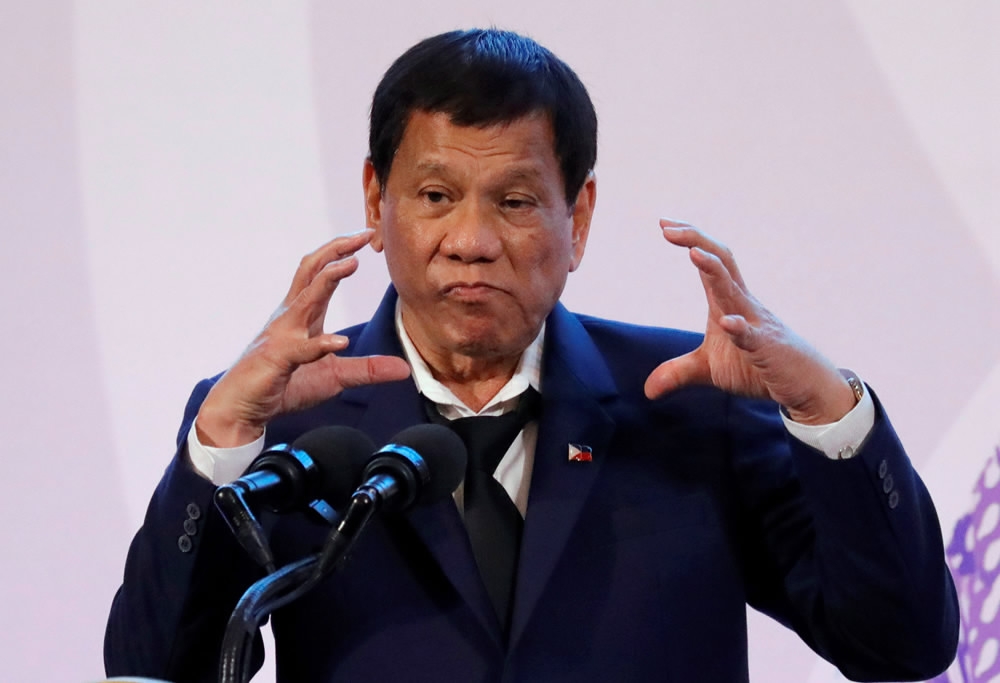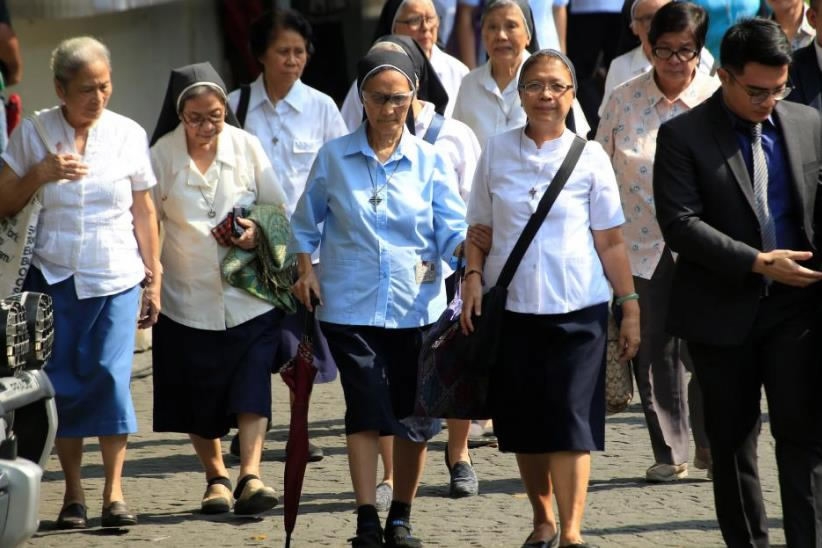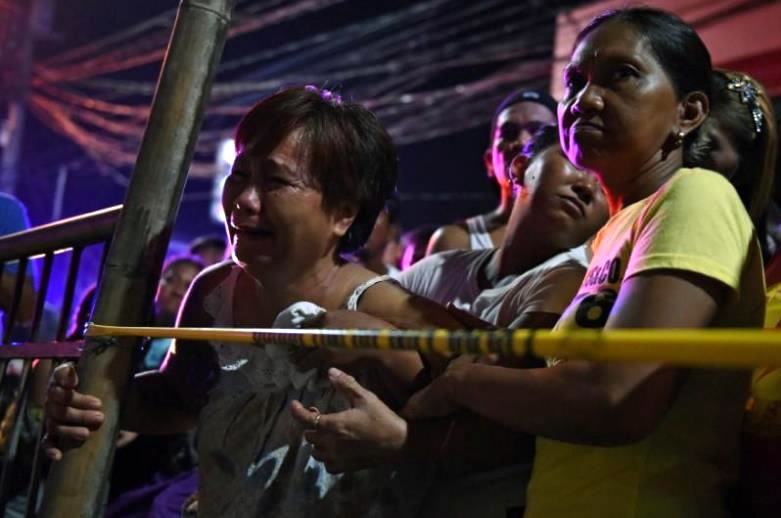
Politics
22:57, 21-Nov-2017
Philippine court begins hearing arguments against drugs war
CGTN

The Philippine Supreme Court has begun hearing a constitutional challenge to President Rodrigo Duterte's deadly war on drugs that has been denounced by rights activists.
In a petition filed last month, lawyers from the Free Legal Assistance Group (FLAG) argued that the anti-drug campaign is unconstitutional because it allows police to kill suspects in the guise of "neutralizing" them during raids and sting operations.
"That could be subject to misinterpretation by the policeman on the ground," Chel Diokno of FLAG told the court, arguing that the term "neutralize" could mean "kill."
More than 3,900 Filipinos have been killed in what the police called self-defense after armed drugs suspects resisted arrest in the 16-month-long campaign. Critics say executions are taking place, with zero accountability, allegations the police reject.

Philippine President Rodrigo Duterte. /Reuters Photo
Philippine President Rodrigo Duterte. /Reuters Photo
The government chief lawyer, Jose Calida, has said there was never an instruction to kill drug suspects, seeking to dismiss the petition for being "marred by speculation, unfounded information and unsubstantiated arguments."
A day before FLAG lawyers filed the petition, Duterte issued an order removing the police from the anti-drugs campaign, putting the Philippine Drug Enforcement Agency (PDEA), a small and undermanned agency, in charge.
Dozens of drug offenders have been arrested in the month since the PDEA took over and there have been fewer deaths reported, but police said there had been a rise in drug-related crimes.

Nuns enter the Supreme Court's compound to attend the start of oral arguments on consolidated petitions to declare Philippine President Rodrigo Duterte's drug war unconstitutional on November 21. /Reuters Photo
Nuns enter the Supreme Court's compound to attend the start of oral arguments on consolidated petitions to declare Philippine President Rodrigo Duterte's drug war unconstitutional on November 21. /Reuters Photo
Duterte said last weekend that he would call police back to the drugs war if drug use and crime rose again.
US President Donald Trump praised Duterte in May for doing an "unbelievable job on the drug problem."
UN rebukes Duterte for threats
The United Nations human rights office on Tuesday condemned attacks and threats made against its investigators by Duterte.

A relative of a victim cries behind the police line at the site of a drug-related shooting by unidentified men riding on motorcycles at Navotas City in metro Manila, Philippines on June 19. /Reuters Photo
A relative of a victim cries behind the police line at the site of a drug-related shooting by unidentified men riding on motorcycles at Navotas City in metro Manila, Philippines on June 19. /Reuters Photo
"Last week Mr. Duterte threatened to slap (UN special rapporteur) Agnes Callamard if she investigates him for alleged extrajudicial killings," UN human rights spokesman Rupert Colville told a news briefing.
"He made the same threat against her in June after she criticized his 'war on drugs' campaign which has left thousands dead," he added, referring to remarks made after her visit in May in an unofficial capacity to attend an academic conference.
Source(s): Reuters

SITEMAP
Copyright © 2018 CGTN. Beijing ICP prepared NO.16065310-3
Copyright © 2018 CGTN. Beijing ICP prepared NO.16065310-3